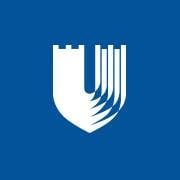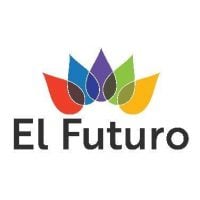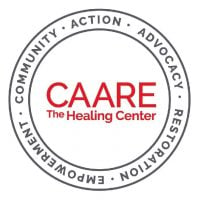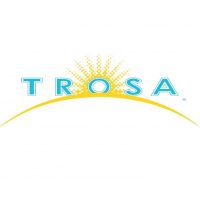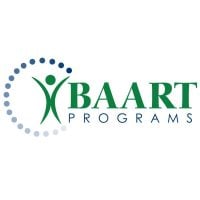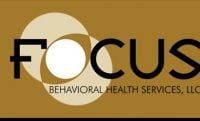Duke Child Development and Behavioral Health Clinic
Drug Rehab Center in Durham, North Carolina
The Duke Child Development and Behavioral Health Clinic in Durham, North Carolina is a premier addiction treatment facility that provides comprehensive and evidence-based substance abuse, mental health, and dual-diagnosis services.
About This North Carolina Facility
The Duke Child Development and Behavioral Health Clinic in Durham, North Carolina is a state-of-the-art addiction treatment facility that specializes in providing comprehensive and evidence-based substance abuse, mental health, and dual-diagnosis services. Its mission is to provide innovative, patient-centered care that is tailored to the individual needs of each patient. The clinic offers a full range of treatments including Aftercare Support, Drug Rehabilitation, Intensive Outpatient, and Outpatient levels of care. The clinic is fully accredited and licensed by the state of North Carolina and is in-network with many private health insurance companies.
The Duke Child Development and Behavioral Health Clinic is committed to helping individuals and families manage the consequences of addiction and substance abuse. The clinic provides a multi-disciplinary team approach to treatment and help patients address issues related to alcohol and drug addiction, opioid addiction, mental health, and dual diagnosis. With its comprehensive services and a team of professionals dedicated to the recovery process, the Duke Child Development and Behavioral Health Clinic is one of the premier addiction treatment facilities in the region.
Genders
Ages
Modality
Additional
Conditions and Issues Treated
Using both legal medications and illegal substances in order to maintain an addiction is substance abuse. If you are taking more of your prescription, or earlier than the prescribed time interval between doses than is directed you may be abusing that medication. If you are obtaining legal medications illegally in or near Durham, NC, you may be suffering from substance abuse.
Illegal substances can become addictive after a single use and lead rapidly to substance abuse. The professionals at Duke Child Development and Behavioral Health Clinic are here to help.
Opioids are a set of drugs prescribed for pain relief. Health care providers prescribe opioids for relief of severe pain after major surgeries and in conditions like cancer. Oxycodone, fentanyl, oxymorphone, hydrocodone, codeine, and morphine are some of the commonly prescribed opioids. They also include illegal drugs of abuse like heroin. Opioid addiction refers to the compulsive seeking of opioids, even when they are not required medically.
Opioid addiction treatment involves medication-assisted therapy (MAT) in which medicines, counseling, and behavioral therapies are all employed. Opioid addiction treatment is a comprehensive approach at Duke Child Development and Behavioral Health Clinic in Durham, NC that boosts the treatment success rate and provides sustained recovery.
Mental illness includes conditions such as anxiety, depression, schizophrenia, bipolar disorder. It can also happen that mental illness causes drug addiction and vice versa. Duke Child Development and Behavioral Health Clinic in North Carolina knows it is vital to diagnose dual diagnosis or co-occurring disorder.
Levels of Care Offered at Duke Child Development and Behavioral Health Clinic
This center offers a variety of custom treatment tailored to individual recovery. Currently available are Aftercare Support, Drug Rehab, Dual-Diagnosis, Intensive Outpatient, Outpatient, with additional therapies available as listed below.
Intensive outpatient programs (IOP) comprise regular visits to the North Carolina facility that provides the therapy. IOP is suitable for patients who have been treated in residential treatment programs. Duke Child Development and Behavioral Health Clinic‘s patients gradually get back to their routine life.
Facilities like Duke Child Development and Behavioral Health Clinic offer a variety of services, such as individual and group counseling and family therapy. During the sessions, you work with a team of experts that include: General physicians, Psychiatrists, Social Workers, and Psychologists. The main goals of outpatient recovery programs are to help addicted individuals reduce drug use and addictive behaviors, eventually becoming entirely sober.
Treatment is just a first step in sustaining sobriety. After rehabilitation, counseling for aftercare helps the person adapt to a life without drugs. A sober living facility in Durham, job therapy, or educational assistance may be included in this service, managed by Duke Child Development and Behavioral Health Clinic. This is when a preventive strategy for relapse starts to take shape.
Therapies & Programs
Therapy plays a major role in addiction recovery. It encourages patients to get to the root of their addiction and learn how to better handle the issues that led to using. Therapy can be conducted in group and one on one settings. In Duke Child Development and Behavioral Health Clinic‘s individual therapy, the patient meets with the therapist in a one on one setting. This allows them to focus on the underlying issues of addiction and come up with solutions to prevent future abuse.
One of the most common areas of stress and damage during addiction is in intimate relationships. Addiction involves everyone in a family, not only the addict. Couples therapy can rebuild trust and joy that may have been damaged.
When the whole family is involved, healing can be far more successful. Family counseling involves genetic factors to the family of the addict. This offers the means to cope with addiction and its underlying emotional disorders for loved ones. It is a helpful method for addicts in helping to adjust to sober living.
Trauma therapy allows people who struggled with a past trauma to face the situation and learn to overcome the situation. Many people who went through trauma early on, struggle with addiction later in life. By addressing the trauma and moving past the issues, it can help someone attending treatment at Duke Child Development and Behavioral Health Clinic in Durham, NC move forward with their recovery and begin to take a better hold of their sober future.
REBT stands for rational emotional behavior therapy. This is a type of cognitive behavioral therapy, or CBT, that combines images with thoughts and behaviors. It allows for deeper education and understanding of what one can do to help themselves with recovery. It is a deep sense of self-help education managed by Duke Child Development and Behavioral Health Clinic that lets someone recovering work through issues on their own, knowing they have the support of people around them if they need it.
Contingency management is a way to help motivate someone to remain substance free. It is a process Duke Child Development and Behavioral Health Clinic uses which involves rewarding positive choices and good outcomes. As humans we are wired to recreate experiences that lead to positive feelings.
Payment Options Accepted
For specific insurance or payment methods please contact us.
Is your insurance accepted?
Ask an expert, call (888) 674-0062
Additional Details
Specifics, location, and helpful extra information.
Durham, North Carolina 27705 Phone Number(919) 668-5559 Meta DetailsUpdated November 25, 2023
Staff Verified
Patient Reviews
There are no reviews yet. Be the first one to write one.
Durham, North Carolina Addiction Information
North Carolina ranks 29th in the nation for overall substance abuse. Many of the drugs abused in the state are illicit, and many of these are opioids. Prescription opioids are readily available due to the high rates of medical workers prescribing them. The number of prescriptions has increased tenfold since the 1980's. Opioid overdoses are the most common type of death in North Carolina.
Over 8% of the population in Durham abuses drugs, and this number continues to rise. Prescription opioids, heroin, and cocaine are the most commonly abused drugs in the city. Marijuana is also a problem, with many people using it as their first drug. About 26% of HIV/AIDS cases are attributed to injection drug use. Local officials have started to offer various programs to help those affected by addiction.
Treatment in Nearby Cities
- Boone, NC (153.8 mi.)
- Williamston, NC (105.8 mi.)
- Old Fort, NC (184.0 mi.)
- Hudson, NC (143.9 mi.)
- Havelock, NC (138.7 mi.)
Centers near Duke Child Development and Behavioral Health Clinic
The facility name, logo and brand are the property and registered trademarks of Duke Child Development and Behavioral Health Clinic, and are being used for identification and informational purposes only. Use of these names, logos and brands shall not imply endorsement. RehabNow.org is not affiliated with or sponsored by Duke Child Development and Behavioral Health Clinic.
